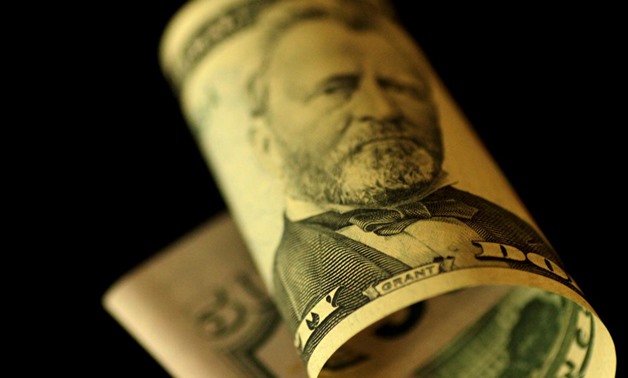
A U.S. Dollar note is seen in this June 22, 2017 illustration photo. REUTERS/Thomas White/Illustration
TOKYO - 10 November 2017: The dollar licked its wounds on Friday, on track for weekly losses after it dropped on disappointment with a tax bill put forth by U.S. Senate Republicans that would delay expected corporate tax cuts.
The dollar index, which gauges the greenback against a basket of six major rivals, inched up 0.1 percent to 94.493 after skidding 0.36 percent in the previous session. It was down 0.5 percent for the week.
The Senate Republicans’ bill to rewrite the tax code differed from their House counterparts’ plan. Like the House version, the Senate’s proposal would cut the corporate tax rate to 20 percent from 35 percent, but the Senate plan would delay implementation until 2019.
“It really is U.S.-led, at the moment, for the dollar,” as investors focus on the details of the tax proposals, said Bart Wakabayashi, branch manager for State Street Bank and Trust in Tokyo.
“The overnight move focussed on the tax situation in the U.S. and the seeming delay that is going to occur,” for the corporate tax cut, he said. “Tax reform is going to remain centre-stage.”
Both plans call for a tax on $2.6 trillion in foreign profits held offshore by U.S. multinationals. The Senate wants that tax to be 12 percent for cash and liquid assets, and 5 percent for non-liquid assets. The House amended its bill on Thursday, going to 14 percent and 7 percent, respectively.
Both bills would add $1.5 trillion over 10 years to the U.S. budget deficit and national debt, which in the past would likely have faced criticism from Republicans.
The dollar inched 0.1 percent lower to 113.38 yen, down 0.6 percent for the week and well below its eight-month high of 114.737 logged on Monday. It has gained more than 5 percent over the past two months, which some say makes it vulnerable to profit-taking.
“I’ve been warning that November is a dangerous month for the dollar,” said Mitsuo Imaizumi, Tokyo-based chief foreign-exchange strategist for Daiwa Securities.
Funds that close their books this month could take profits on dollar-long positions, as well as their holdings of U.S. stocks, he said, adding that U.S. tax plan details could offer them excuses to sell.
Higher U.S. yields underpinned the dollar, with the 10-year Treasury yield at 2.343 percent, compared with its U.S. close on Thursday of 2.331 percent. While yields initially fell amid uncertainty about tax reform, they rose again as prices were pressured by this week’s government and corporate debt supply.
The euro was up slightly on the day at $1.1646, 0.3 percent higher for the week and holding well above a 3-1/2-month low of $1.1553 plumbed on Tuesday.
Sterling inched down 0.1 percent to $1.3141. But was still on track to gain 0.5 percent for the week plagued by political scandals that raised doubts over the Conservative government’s ability to secure a strong deal in Brexit negotiations.


Comments
Leave a Comment